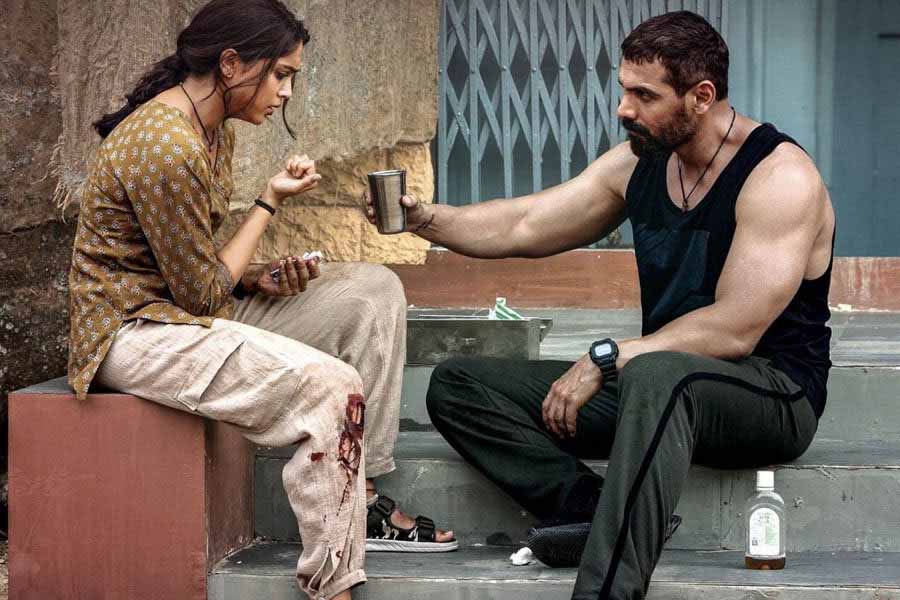John Abraham turns John Wick in Nikkhil Advani’s latest film Vedaa, where he single-handedly mows down dozens of men, withstands bullets and grenades, and ultimately enables a Dalit girl to try and get some justice.
Set in a small town called Barmer in Rajasthan, it is the story of Dalit girl Vedaa Berwa (Sharvari) and her fight to survive in a social system thriving on caste-based discrimination.
The film succeeds in spotlighting Dalit rights and bringing it to the mainstream film space. Could it have been more impactful? Definitely. But it is engaging and entertaining in equal parts and leaves the audience unsettled, as it should.
Vedaa Berwa draws the attention of the younger brother of village pradhan Jitendra Pratap Singh for her spunk — she dares to break the mould and ride a scooter —- and because she is not easily cowed. Every time these two meet is a potentially dreadful moment because anything can happen. Vedaa signs up for boxing lessons but is shown her place and asked to clean the boxing ring. When she gets beaten up by the pradhan’s brother just for wanting to learn boxing, John Abraham’s Abhimanyu rides to the rescue.
Abhimanyu is a court-martialled army major who killed the terrorist responsible for killing his wife. He arrives at Barmer to keep a promise he had made to his wife who hailed from this village. Abhimanyu’s father-in-law gets him a job as the assistant boxing coach in the college, where he is shocked to see Vedaa willingly moving to the back of the line, giving in to bullying quietly and drinking from a separate urn.
So ingrained is this discrimination that Vedaa does all of this without question. Her father (Rajendra Chawla) beats her elder brother because he is in love with an upper caste girl, knowing that it will only end in grief (which it does). It is in these small details highlighting the normalisation of discrimination and violence that the movie succeeds. Where it falls short, however, is in keeping the focus on the issue, which gets buried in the action.
The action is superlative, with good camera work and great choreography. John Abraham does the silent, brooding saviour pretty well and looks good taking down goon after goon all by himself. But while the action in the first half of the film is supported by a progressing storyline, the second half devolves into meaningless violence. And it is surprising that out of a halestorm of bullets aimed at Vedaa and Abhimanyu, only one lands.
While issues like casteism are not battles to be fought alone, it is tiring to see men riding to the rescue of women over and over again. The title of the film might belong to Vedaa and it might be about her fight, but there's no doubting who the hero of the film is — it is Abraham’s Abhimanyu.
As Vedaa, Sharvari’s chirpiness is a little grating in the beginning but she finds a rhythm as the film progresses. She is especially great in the emotional scenes, with rage, fear and determination pouring out of her. Also praiseworthy is Abhishek Banerjee as the outwardly progressive but vile upper caste pradhan.











